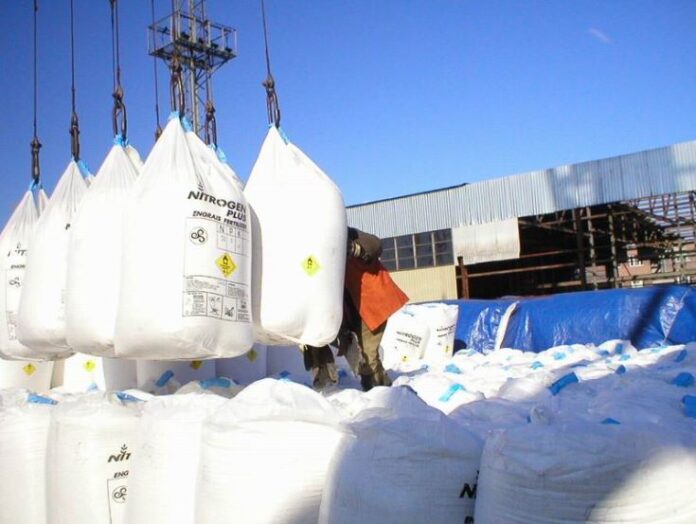
Every company is looking for ways to move goods faster, safer, and at lower cost. Especially with today’s fast-changing supply chains. Warehouses and ports are under constant pressure to improve efficiency while reducing downtime. Traditional packaging like to smaller sacks or rigid containers often takes up too much space and requires more labor to handle.
A good — and better — alternative is bulk bags: also known as Flexible Intermediate Bulk Containers (FIBCs). These strong, flexible containers offer a simple way to move large volumes of dry materials while keeping operations safe and efficient.
What are bulk bags?
A bulk bag is a large, woven polypropylene sack. It’s designed to hold from 1,100 to 4,400 pounds (about 500 to 2,000 kilograms) of dry goods. Examples of such goods are sand, grains, chemicals, or plastics. The fabric is strong but lightweight, allowing the bag to carry a high load compared to its own weight.
Each bag has lifting loops so you can handle it by a forklift or crane. Some have inner liners to protect against moisture or contamination. Other bags are made from conductive fabric for use with flammable materials. You can reuse bulk bags several times depending on their design and the type of product being stored.
Key advantages that make bulk bags a logistics staple
Space optimization
Bulk bags use vertical space efficiently. Allow to ship more products in less area through stacking the bulk bags. In this way you work efficiently with limited warehouse or container space.
Cost efficiency
Bulk bags are also a cost-effective alternative to smaller sacks or rigid containers. They are cheaper to buy, store and transport, and because bulk bags are delivered flat-packed, they save valuable storage space before use. Many companies also experience lower labour costs, as handling and filling processes are faster and more efficient.
Handling flexibility
You can lift bulk bags easily with standard equipment such as forklifts or cranes. They adapt well to both manual and automated systems. For ports and shipping yards, this flexibility helps speed up loading and unloading, improving turnaround times.
Safety and compliance
Bulk bags reduce the risk of spills, dust and contamination. Many models are designed to meet international safety standards, including UN-certified versions for hazardous materials. This makes them a trusted choice across industries like food, chemicals, and construction.
Sustainability
Most bulk bags are made with recyclable materials. Use them multiple times. Their light weight reduces transport emissions, and using fewer single-use containers supports more sustainable supply chains.
The role of bulk bags in maritime and containerized shipping
Bulk bags fit perfectly into modern shipping and container operations. Load them directly into 20- or 40-foot containers. In this way you make them ideal for intermodal transport between trucks, ships, and trains. It prevents repacking and stops product loss.
Bulk bags allow for faster loading and unloading compared to loose materials. Improve safety by keeping dust and debris contained. This is a major benefit in busy terminals handling products like fertilizers, minerals, or grains.
It’s easier to standardize shipments and simplify inspection processes for exporters while working with bulk bags. Their durability also means fewer damaged goods and less waste during long-distance transport.
Choosing the right bulk bag for your operation
Choose your FIBC based on material type, density and safety needs. Think about food-grade or chemical-grade products. These products require specific certifications and liner options. Consider whether your operation benefits from single-use or multi-trip bags.
Working closely with a supplier with proven experience in your industry helps ensure your bags meet performance standards and safety rules. The right partner can also advise you on filling, storage and reconditioning practices that extend bag life and reduce costs.
Why bulk bags will help with containerized shipping
Bulk bags have proven themselves as a cost-effective, safe and flexible solution for material handling. Their advantages in space and cost make them a natural fit for today’s global logistics systems. These advantages will be worth more and more while the supply chains are growing more complex. So choose bulk bags when your company needs to move materials smarter. Now and in the future.





